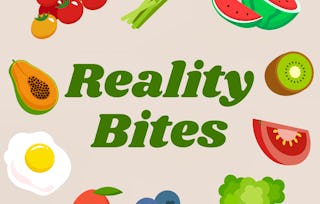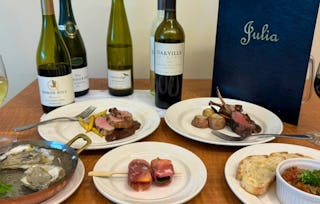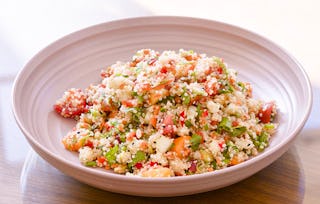This course introduces several basic scientific principles underpinning the methodology of cooking, food preparation, and the enjoyment of food. All topics covered have a strong basis in biology, chemistry, and physics application. Among others, they include the consumption of cooked food, the physiological and evolutionary implications of the senses, geographic and cultural influences on food, and the rationale behind food preparation. We will also discuss issues such as coupling of senses to improve sense stimulation; altering flavor by chemical means, and modification of the coloration to improve the appearance of dishes. Following the video demonstrations of the scientific principles of cooking, you will learn to recognize the key ingredients and their combinations for preparing good healthy food. You will also be asked to try out and practice specific cooking principles through the weekly assignments; analyze your data and make comparisons of your experiences with others.

The Science of Gastronomy

788 reviews
Skills you'll gain
Details to know

Add to your LinkedIn profile
9 assignments
See how employees at top companies are mastering in-demand skills

There are 7 modules in this course
Before you start with the content for Energy Transfer, please watch the Course Overview, review the Grading Scheme, and read the Important Note on special dietary needs.
What's included
12 videos2 readings
This week, we will talk about Hunger and Satiety. There will be two interesting assignments for you to work on.
What's included
14 videos3 readings2 assignments1 discussion prompt
This week, we will talk about how food flavor affects our perception of taste. Again, there will be two interesting assignments for you to work on.
What's included
13 videos2 readings2 assignments1 discussion prompt
This week, we will talk about how the aroma of food affects our perception of taste. We have prepared one assignment on this topic for you to work on.
What's included
12 videos1 reading1 assignment1 discussion prompt
This week, we will talk about how the color of food affects our perception of taste.
What's included
9 videos1 reading1 discussion prompt
This week, we will talk about how the texture of food affects our perception of taste. There will be two interesting assignments for you to work on.
What's included
12 videos2 readings2 assignments1 discussion prompt
This week, we will see how fruits and vegetables can enhance the quality of cooking. There will be one assignment related to this topic for you to work on. After completing all the content, it's time to test your understanding of the entire course. Take the final exam and help review this course. Your valuable feedback will certainly help us improve future iterations of the course.
What's included
12 videos2 readings2 assignments1 discussion prompt
Instructor

Explore more from Basic Science
 Status: Free Trial
Status: Free TrialUniversity of California, Davis
 Status: Preview
Status: PreviewErasmus University Rotterdam
 Status: Preview
Status: PreviewThe State University of New York
 Status: Free Trial
Status: Free TrialStanford University
Why people choose Coursera for their career

Felipe M.

Jennifer J.

Larry W.

Chaitanya A.
Learner reviews
- 5 stars
75.88%
- 4 stars
17%
- 3 stars
4.44%
- 2 stars
1.26%
- 1 star
1.39%
Showing 3 of 788
Reviewed on Aug 25, 2020
Everything went well. I don't really like book in a sense, like reading but not exam, that's why I tried so many times. Taught me patience, ...spend time wisely...cook different fish in different ways
Reviewed on Apr 5, 2019
If you enjoy cooking and also enjoy chemistry, this course is ideal. It taught me many techniques in the kitchen and why the food changes during the cooking process.
Reviewed on May 18, 2020
Very interactive and informative, great way to learn! I do think it could be condensed, but overall it was an enjoyable course.

Open new doors with Coursera Plus
Unlimited access to 10,000+ world-class courses, hands-on projects, and job-ready certificate programs - all included in your subscription
Advance your career with an online degree
Earn a degree from world-class universities - 100% online
Join over 3,400 global companies that choose Coursera for Business
Upskill your employees to excel in the digital economy
Frequently asked questions
To access the course materials, assignments and to earn a Certificate, you will need to purchase the Certificate experience when you enroll in a course. You can try a Free Trial instead, or apply for Financial Aid. The course may offer 'Full Course, No Certificate' instead. This option lets you see all course materials, submit required assessments, and get a final grade. This also means that you will not be able to purchase a Certificate experience.
When you purchase a Certificate you get access to all course materials, including graded assignments. Upon completing the course, your electronic Certificate will be added to your Accomplishments page - from there, you can print your Certificate or add it to your LinkedIn profile.
Yes. In select learning programs, you can apply for financial aid or a scholarship if you can’t afford the enrollment fee. If fin aid or scholarship is available for your learning program selection, you’ll find a link to apply on the description page.
More questions
Financial aid available,

